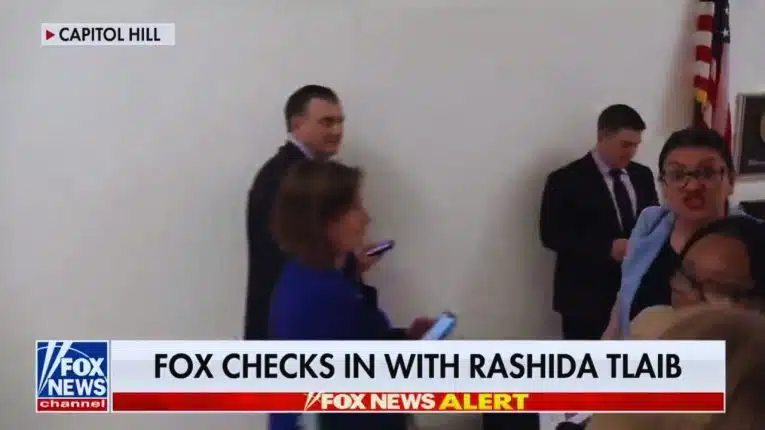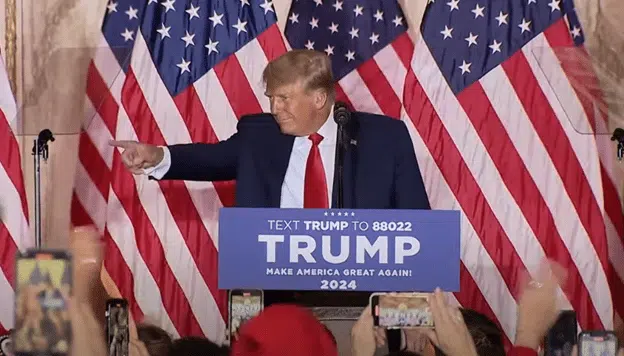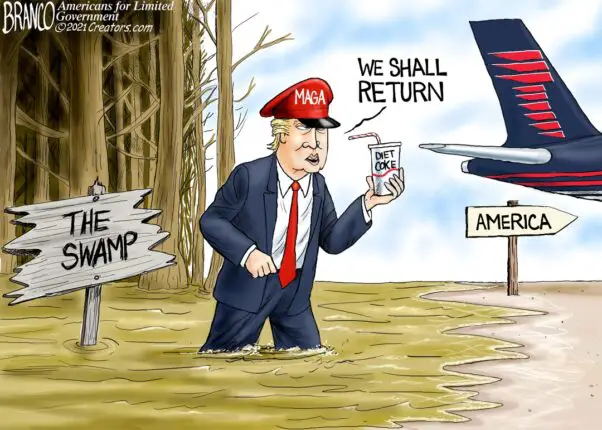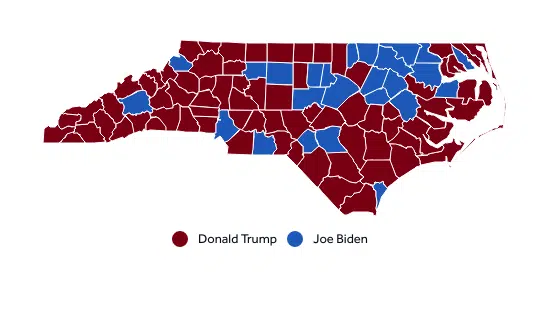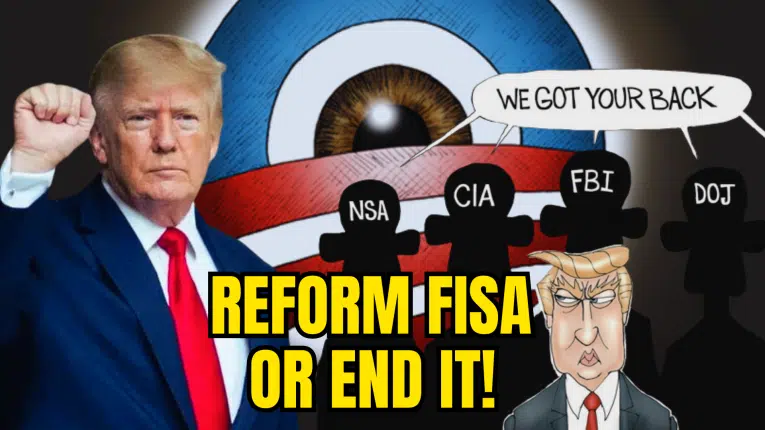By Bill Wilson –
Congress has a huge dilemma. As it considers whether or not to approve legislation that will prevent tax increases for all Americans for two years, cuts Social Security payroll taxes for employees, and extends unemployment benefits, it has to choose between two very bad situations.
The question is: Which situation is worse? If the deal goes through, or if it does not?
The first situation is if the deal goes through. If it does, Social Security will be underfunded by as much as $120 billion next year. That means the U.S. will be forced to borrow that money to keep the program solvent. Also, the unemployment welfare extension will add another $56 billion to the deficit.
Ideally, these parts of the deal would be paid for by offsetting cuts elsewhere in the budget, but alas in Washington that almost never happens. And it won’t in this deal, so the legislation will add another $176 billion to the current $1.3 trillion deficit.
Objections to this are obvious from fiscal hawks, and they are well-founded. Out of the gates, congressional Republicans are accepting that next year, the deficit could balloon to almost $1.5 trillion. That’s not what Americans voted for in 2010. John Boehner and Mitch McConnell will politically own that deficit if they cannot find a way to cut spending in 2011.
Even if revenues improve on the basis of higher economic growth because of relatively lower tax rates and the lower unemployment that results, the 2011 deficit would still almost assuredly be over $1 trillion. The Congressional Budget Office’s (CBO) baseline projection for revenue has assumed that the taxes would be hiked in 2011 pretty much across the board. Remove that assumption, and under CBO’s baseline, revenues take longer to recover and the deficits are larger.
Either way, the likely outcome of the deal going through are still trillion dollar deficits as far as the eye can see, because they are not being coupled with any commitment to ever cut spending.
Critics of the deal are betting that Congress, based on how this deal has developed, will going forward similarly be unable to cut any spending in 2011 and beyond. History proves that assumption. Moreover, the implications of not cutting spending significantly now, and balancing the budget, are devastating.
Borrowing costs for the U.S. government are already rising. Ten-year treasuries are now up to about a 3.2 percent interest rate. The Treasury is already dependent on the Federal Reserve purchasing U.S. debt, to the extent where the central bank will be the top lender to the government in the world next year, more than China or Japan. The $13.8 trillion national debt will surpass 100 percent of the Gross Domestic Product in just a few years. And the U.S. faces a likely credit downgrade by 2018 if not sooner by Moody’s, as reported by Investor’s Business Daily.
This will lead to a death spiral of even higher borrowing costs, the loss of the dollar as the world’s reserve currency, the Fed printing hundreds of billions more dollars to paper over the debt, and eventually, higher inflation that causes energy and other commodities to be much more expensive, putting even more pressure on broken budgets at every level of government. Ultimately, this is the path of financial ruin and likely default on the debt, and would be worse than any recession the nation might normally experience. Adding another $176 billion to the debt cannot possibly help reverse these trends.
So, the fiscal hawks have a major point to make. Their legitimate concerns about the spiraling debt are not at all addressed by Barack Obama’s grand bargain, because there are no budget cuts included to offset the increased spending the plan calls for.
On the other side of the equation is the alternative: What if the tax rates are allowed to suddenly be increased across the board? This is perhaps best articulated by Art Laffer in a June 6th, 2010 Wall Street Journal piece, “Tax Hikes and the 2011 Economic Collapse”.
As Laffer writes, if Congress does not act, “the highest federal personal income tax rate will go [to] 39.6 percent from 35 percent, the highest federal dividend tax rate pops up to 39.6 percent from 15 percent, the capital gains tax rate to 20 percent from 15 percent, and the estate tax rate to 55 percent from zero.”
In addition, tax rates are also rising at the state and local levels as governments failingly attempt to fill budget gaps. As a result, Laffer writes that production and income have been shifted out of 2011 into 2010. Therefore, “income this year has already been inflated above where it otherwise should be”, and with interest rates set to rise as well along with a slew of new regulations to go into effect in 2011, the “shift of income and demand is a major reason that the economy in 2010 has appeared as strong as it has,” Laffer notes.
So, when the costs of doing business suddenly rise in 2011, Laffer predicts that “the train goes off the tracks and we get our worst nightmare of a severe ‘double dip’ recession.” Leaving no doubt, he gloomily states, “The economy will collapse in 2011” if the tax rate increases go into effect.
What will that mean? Even though taxes would be collected at higher rates, the economy itself would be shrinking. That means perhaps after an initial increase of revenue, decreasing the $1.3 trillion deficit slightly, a sharp recession would follow. In turn that would mean that deficits would be much higher, unemployment would go up as job creators are forced to consolidate, and a deteriorating fiscal situation similar to that outlined above would still unfold with higher interest rates, a loss of confidence in the dollar, and inflation.
In addition, more investment would be moved overseas to emerging economies since the U.S. would be that much more globally uncompetitive with even higher rates of taxation. Domestic markets would be slaughtered, investors would be hit hard, and 401(k)’s would take big haircuts once again. In short, the economy would be strangled in an iron grip.
So, which situation is worse? Depending on the fate of the legislation, either scenario appears likely.
Without a doubt, as dire as the deteriorating fiscal situation is — with credit downgrades and a collapsing dollar perhaps just a few short years away — the imminent tax hikes on all Americans are the immediate threat that must be addressed by Congress. Especially since the economic downturn that will likely ensue if taxes go up across the board during an already severe economic downturn would cause the fiscal situation to unravel that much quicker.
But that hardly settles the matter. The fiscal hawks still have a major reason to vote no on this bill (as do the radical Democrat caucuses in the House and Senate that wants taxes to go up in any event). This presents a tremendous challenge to congressional leadership, especially now that emerging factions on both sides of the aisle are positioning themselves to vote no.
For the deal to go through with support from the fiscal hawks if they are needed, there would need to be provisions to pay for extending unemployment benefits and underfunding Social Security. That would mean $176 billion of offsetting spending cuts out of the budget.
Or, in the least, assuming the votes are there even without the support of fiscal hawks, to get the fiscal house in order there must be a commitment by Republican leaders to actually cut spending and start to balance the budget come January. As noted by chief economist for Standard & Poor’s David Wyss, “You can live with short-term damage if you fix stuff in the long run, but there’s not much sign of fixing stuff in the long run.”
For in the final analysis, although the deal as it stands deals with the immediate tax hike threat to the economy, it does nothing to address the existential threat posed by the rapidly growing $13.8 trillion national debt to all Americans. It also guarantees that the same problem of deferred tax increases will come up again in 2012, raising the specter that another budget-busting compromise would be necessary to extend the rates once again.
So, that’s the dilemma. If taxes are allowed to increase across the board, the economy could tank. And, even if the deal goes forward, and the tax hikes are postponed, the fiscal day of reckoning still looms on the not-so-distant horizon.
That means congressional Republicans can accept the deal as it stands, but that they still must make the commitment to rein in spending come January — or else they will find out what happens both politically and economically when the fiscal house of cards finally falls.
Bill Wilson is the President of Americans for Limited Government.


